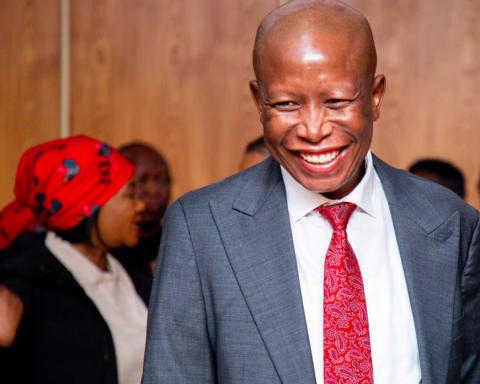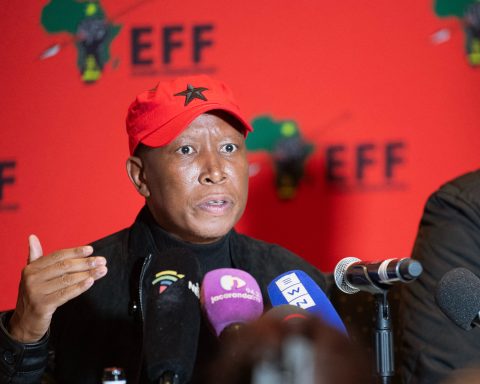The Julius Malema firearm case will stretch into another day. East London Magistrate Twanet Olivier postponed her ruling to Tuesday, 30 September. She told the court she needed more time to finish reading testimony and cross-examination before delivering a final decision. Bail for Malema and his co-accused, former bodyguard Adriaan Snyman, remains in place. Both were ordered to return at 9am.
The Charges and the 2018 Stadium Incident
The case stems from a 2018 video. In it, Malema appears to fire shots from an assault rifle during the EFF’s fifth-anniversary rally at Sisa Dukashe Stadium in Mdantsane. In the Julius Malema firearm case, the EFF leader faces six counts under the Firearms Control Act. These include unlawful possession of a firearm and ammunition, discharging a firearm in a public place, and reckless endangerment. Snyman faces two counts related to allegedly providing a firearm to someone not permitted to possess it. He is also accused of failing to take reasonable precautions.
Defence Challenges ‘Real Gun’ Claim; State Cites Crowd Reaction
Malema and Snyman pleaded not guilty. Defence advocate Laurance Hodes argued there is no direct proof Malema fired a real firearm. He highlighted inconsistencies in the state’s video analysis. Snyman’s team called firearms control and ballistic experts to support that view. Prosecutors countered that several people moved away when shots rang out. They disputed claims that no one felt endangered.
Politics in the Background, Legal Stakes Upfront
EFF secretary-general Marshall Dlamini told supporters the party believes “they did not have a case in 2018; they still don’t have a case today.” He added that the matter has wasted time and resources. AfriForum initially lodged the complaint under the Firearms Control Act. Earlier this month, Malema was also found guilty of hate speech in a separate matter.
What a Conviction Could Mean
Legal commentary in the Julius Malema firearm case stresses that illegal possession is the most serious charge. It can carry up to 15 years in prison. A sentence exceeding 12 months without the option of a fine could disqualify him from public office under electoral law.




